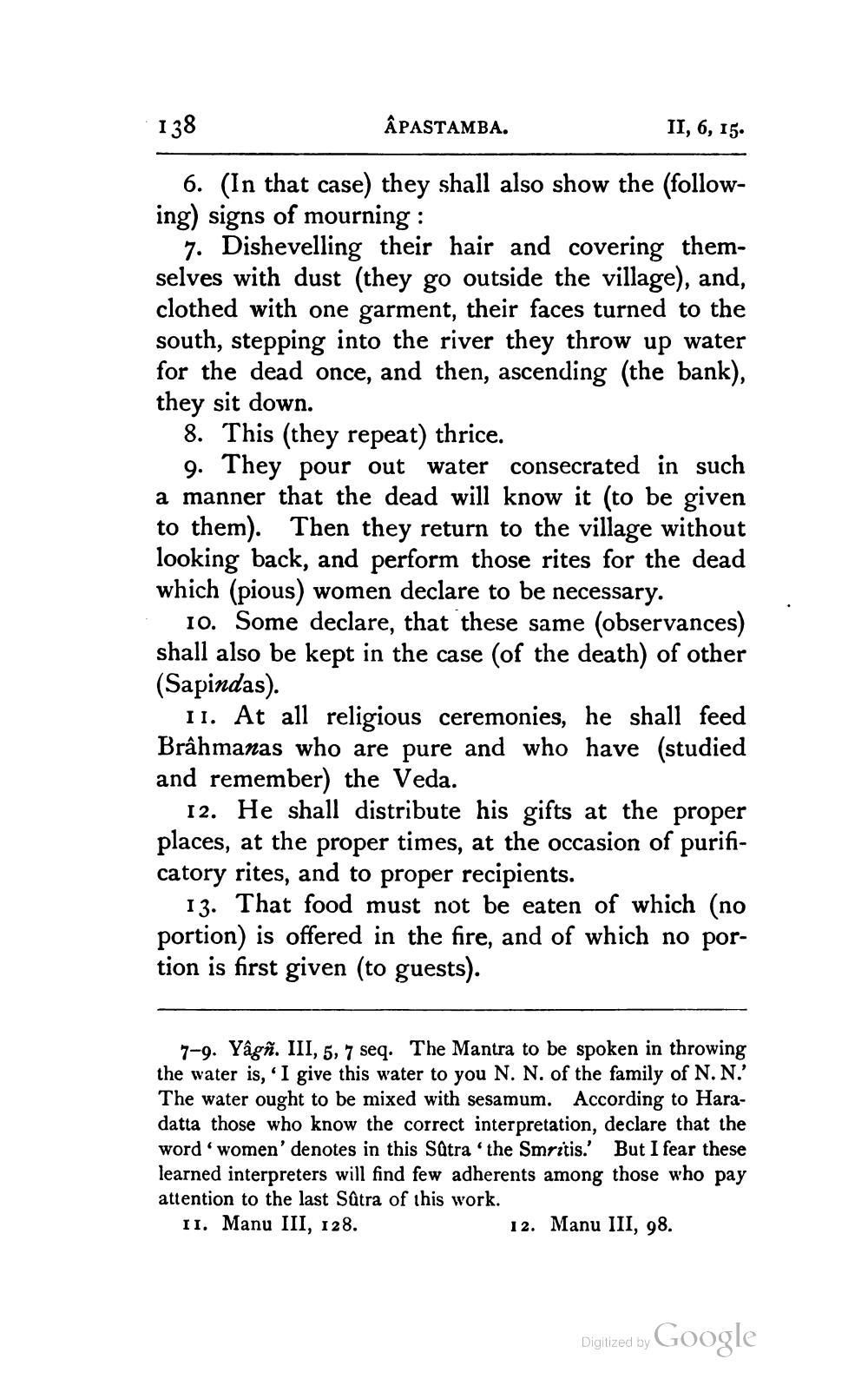________________
II, 6, 15.
138
ÂPASTAMBA. 6. (In that case) they shall also show the (following) signs of mourning :
7. Dishevelling their hair and covering themselves with dust (they go outside the village), and, clothed with one garment, their faces turned to the south, stepping into the river they throw up water for the dead once, and then, ascending (the bank), they sit down.
8. This (they repeat) thrice.
9. They pour out water consecrated in such a manner that the dead will know it (to be given to them). Then they return to the village without looking back, and perform those rites for the dead which (pious) women declare to be necessary.
10. Some declare, that these same (observances) shall also be kept in the case (of the death) of other (Sapindas).
11. At all religious ceremonies, he shall feed Brâhmanas who are pure and who have (studied and remember) the Veda.
12. He shall distribute his gifts at the proper places, at the proper times, at the occasion of purificatory rites, and to proper recipients.
13. That food must not be eaten of which (no portion) is offered in the fire, and of which no portion is first given (to guests).
7-9. Yagñ. III, 5, 7 seq. The Mantra to be spoken in throwing the water is, I give this water to you N. N. of the family of N. N.' The water ought to be mixed with sesamum. According to Haradatta those who know the correct interpretation, declare that the word 'women' denotes in this Satra 'the Smritis.' But I fear these learned interpreters will find few adherents among those who pay attention to the last Sätra of this work. II. Manu III, 128.
12. Manu III, 98.
Digitized by Google




